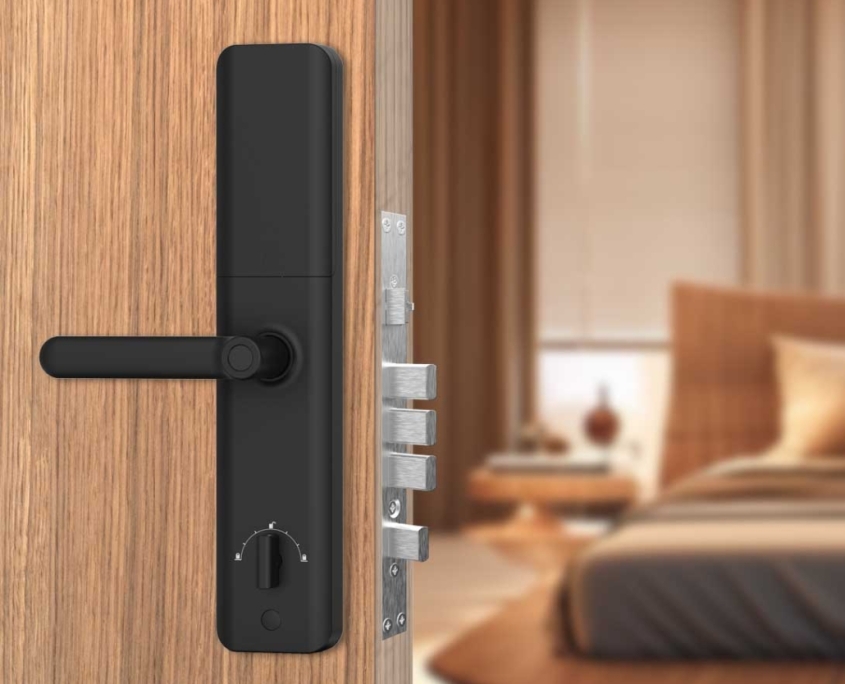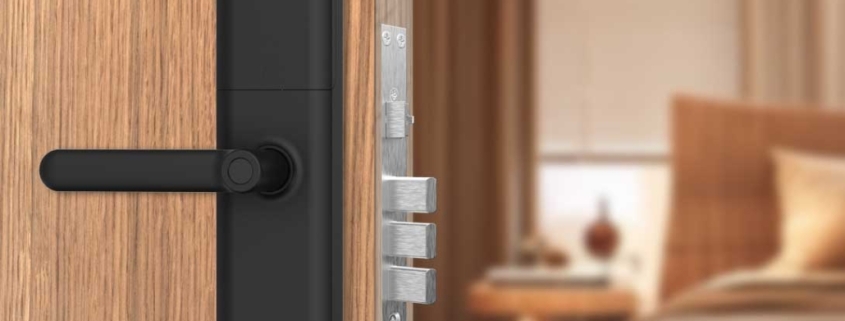Can Smart Locks Be Broken?
Smart locks have revolutionized home security, offering convenience and advanced features that traditional locks can’t match. With options like remote access, voice control, and temporary digital keys, they appeal to tech-savvy homeowners. But as with any technology, a critical question arises: Can smart locks be broken into?
The short answer is yes—no lock is completely impervious, and smart locks are no exception. However, the real question is: How secure are they compared to traditional locks, and what are the most common ways they can be compromised?
In this article, we’ll explore:
- How smart locks work and their security mechanisms
- Common methods hackers and burglars use to break smart locks
- Physical vs. digital vulnerabilities
- How to maximize smart lock security
- Whether smart locks are safer than traditional deadbolts
By the end, you’ll have a clear understanding of smart lock risks and how to use them safely.
How Do Smart Locks Work?
Before discussing vulnerabilities, it’s important to understand how smart locks function. Unlike traditional locks, which rely solely on physical keys, smart locks combine electronic and mechanical components to provide keyless entry.
Types of Smart Locks:
- Wi-Fi or Bluetooth-Enabled Locks – These connect to your home network or smartphone, allowing remote access.
- Keypad Locks – Require a PIN code for entry.
- Biometric Locks – Use fingerprint or facial recognition.
- Hybrid Locks – Offer multiple entry methods (e.g., key, code, and app access).
Most smart locks still include a physical override (like a traditional keyhole) in case of power failure. This is where some vulnerabilities arise.
How Can Smart Locks Be Hacked or Broken Into?
While smart locks are generally secure, they can be compromised in several ways:
1. Bluetooth or Wi-Fi Hacking (Digital Exploits)
Since many smart locks rely on wireless signals, hackers can exploit weak encryption or outdated firmware. Some known methods include:
- Bluetooth Sniffing – Hackers intercept Bluetooth signals to replicate access.
- Wi-Fi Jamming – Disrupting the connection to force a fallback to weaker security.
- Man-in-the-Middle Attacks – Intercepting communication between the lock and smartphone.
2. Weak or Default Passcodes
Many users fail to change default PINs or use easily guessable codes (e.g., “1234” or “0000”). Some locks also allow unlimited entry attempts, making brute-force attacks possible.
3. Physical Tampering (Bypassing the Lock)
Even high-tech locks can be vulnerable to old-school break-in methods:
- Lockpicking – Some smart locks retain a physical keyhole, which can be picked.
- Prying or Drilling – Cheaply made smart locks may be forcibly opened.
- Magnet Attacks – Rare, but some locks can be tricked with strong magnets.
4. App or Cloud Vulnerabilities
If the smart lock’s companion app has security flaws, hackers could:
- Gain access through weak passwords.
- Exploit unpatched software bugs.
- Use phishing scams to steal login credentials.
5. Power or Signal Disruption
Some smart locks malfunction if their batteries die or if Wi-Fi/Bluetooth is jammed, forcing a fallback to manual entry (which may be easier to bypass).

Are Smart Locks Safer Than Traditional Locks?
The answer depends on the model and usage. Here’s a quick comparison:
| Factor | Smart Locks | Traditional Locks |
|---|---|---|
| Pick Resistance | Some resist picking, but keyhole models are still vulnerable. | High-security deadbolts are very pick-resistant. |
| Brute-Force Attacks | Weak PINs can be guessed; strong encryption helps. | Not applicable (unless it’s a combination lock). |
| Remote Hacking Risk | Possible if poorly secured. | None (no digital components). |
| Convenience | High (remote access, temporary keys). | Low (requires physical keys). |
Bottom Line: A well-secured smart lock (strong encryption, no default passwords, and firmware updates) can be as safe or safer than traditional locks. However, a poorly configured smart lock may be easier to hack than a high-quality deadbolt.
How to Make Your Smart Lock More Secure
If you own (or plan to buy) a smart lock, follow these best practices:
1. Choose a Reputable Brand
Stick with well-reviewed brands like keyplus, which invest in strong encryption and regular updates.
2. Disable or Cover the Physical Keyhole (If Possible)
Some locks allow you to remove the keyhole entirely, eliminating lockpicking risks.
3. Use Strong, Unique Passcodes & 2FA
- Avoid simple PINs like “1234.”
- Enable two-factor authentication (2FA) if the app supports it.
4. Keep Firmware Updated
Manufacturers release patches for vulnerabilities—always install updates promptly.
5. Monitor Access Logs
Many smart locks track who enters and when. Check logs for suspicious activity.
6. Use a Secondary Security Measure
Pair your smart lock with:
- A door sensor alarm
- A security camera (like Ring or Nest)
- A reinforced strike plate to prevent forced entry
Final Verdict: Are Smart Locks Worth the Risk?
Smart locks offer unmatched convenience, but like any tech, they have vulnerabilities. The key takeaway:
A high-quality, properly configured smart lock is very secure—often more so than traditional locks.
A cheap or poorly set-up smart lock can be hacked or broken into easily.
If you prioritize both security and convenience, invest in a top-tier smart lock, follow best practices, and pair it with additional security measures.
For most Americans, smart locks are a safe upgrade—as long as you use them wisely.
Would You Trust a Smart Lock?
What’s your experience with smart lock security? Have you ever had a break-in attempt? Share your thoughts in the comments!









